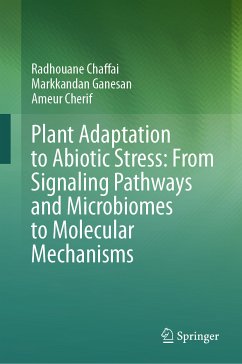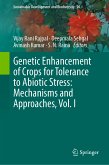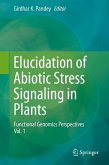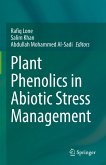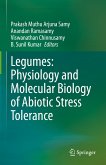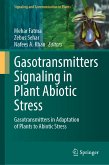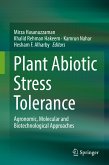The book "Plant Adaptation to Abiotic Stress: From Signaling Pathways and Microbiomes to Molecular Mechanisms" comprehensively examines abiotic stressors-cold, heat, light, salinity, and water scarcity-across its 18 chapters. Focusing particularly on Arabidopsis thaliana, it investigates abiotic stresses, adaptation strategies, and molecular pathways. Furthermore, it addresses broader issues, including climate challenges, food security, water scarcity, and agricultural concerns such as soil acidity and aluminum stress. It proposes adaptive measures for cultivating stress-resistant crops and sheds light on genetic modification methods such as CRISPR-Cas9, integrating nanotechnology in plant breeding. Emphasizing transcription factors, post-translational protein modifications, and diverse noncoding RNAs (long noncoding RNAs, circular RNAs, microRNAs, and small interfering RNAs), the book highlights their role in regulating gene expression during stress responses. It specifically underscores secondary messengers, plant hormones, and MAPK cascades within intracellular signaling pathways. Additionally, it discusses the roles of endophytic bacteria and microbial interactions in bolstering stress resilience. The book explores state-of-the-art research methodologies in plant breeding, omics approaches, and nanotechnology integration for developing stress-resistant crop varieties, advocating for agricultural sustainability. Tailored for plant physiology scientists, academics, and postgraduate students, it amalgamates diverse research findings, serving as a pivotal resource to comprehend intricate plant responses to environmental challenges.
Dieser Download kann aus rechtlichen Gründen nur mit Rechnungsadresse in A, B, BG, CY, CZ, D, DK, EW, E, FIN, F, GR, HR, H, IRL, I, LT, L, LR, M, NL, PL, P, R, S, SLO, SK ausgeliefert werden.

